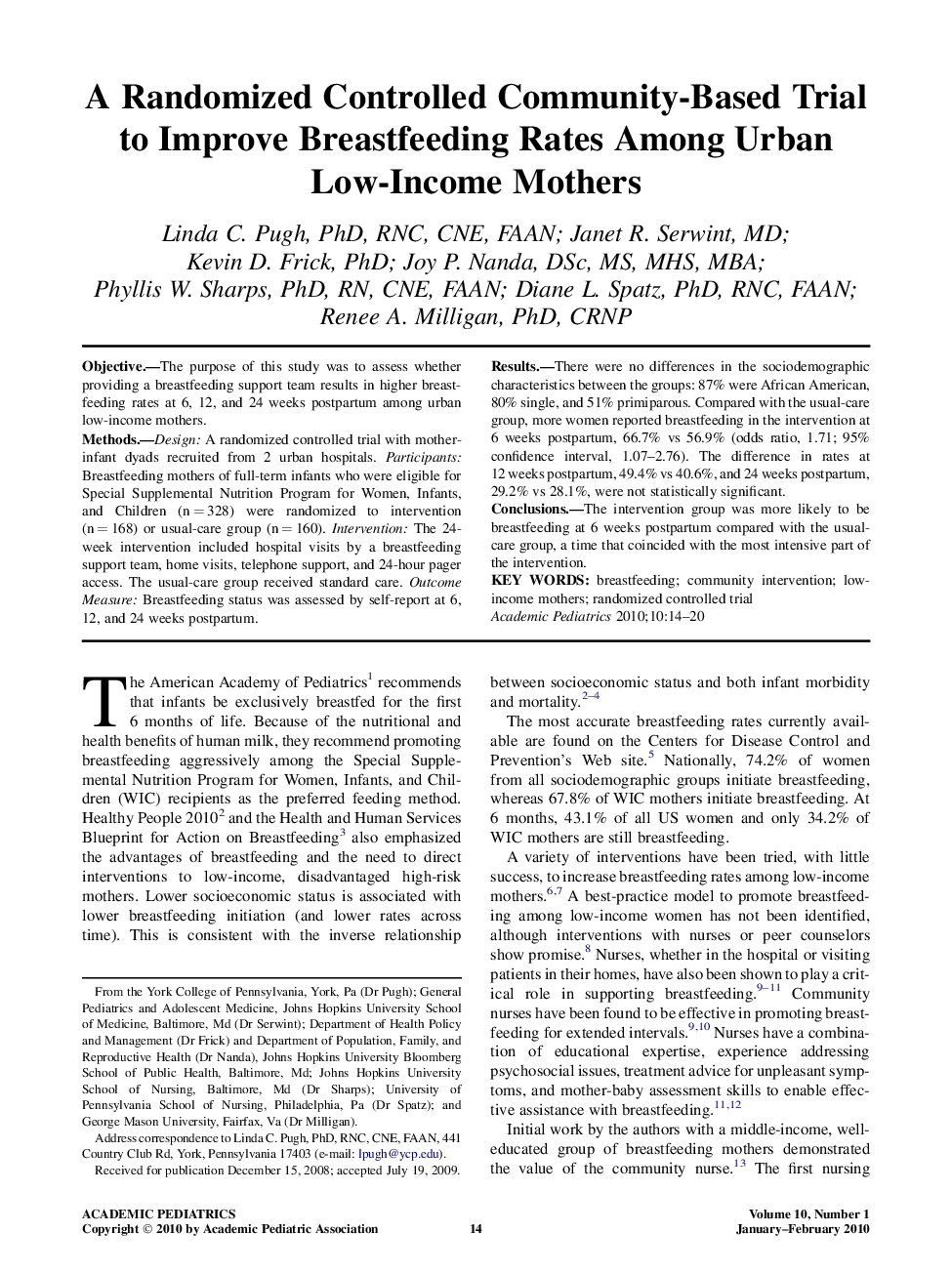| Article ID | Journal | Published Year | Pages | File Type |
|---|---|---|---|---|
| 4139983 | Academic Pediatrics | 2010 | 7 Pages |
ObjectiveThe purpose of this study was to assess whether providing a breastfeeding support team results in higher breastfeeding rates at 6, 12, and 24 weeks postpartum among urban low-income mothers.MethodsDesign: A randomized controlled trial with mother-infant dyads recruited from 2 urban hospitals. Participants: Breastfeeding mothers of full-term infants who were eligible for Special Supplemental Nutrition Program for Women, Infants, and Children (n = 328) were randomized to intervention (n = 168) or usual-care group (n = 160). Intervention: The 24-week intervention included hospital visits by a breastfeeding support team, home visits, telephone support, and 24-hour pager access. The usual-care group received standard care. Outcome Measure: Breastfeeding status was assessed by self-report at 6, 12, and 24 weeks postpartum.ResultsThere were no differences in the sociodemographic characteristics between the groups: 87% were African American, 80% single, and 51% primiparous. Compared with the usual-care group, more women reported breastfeeding in the intervention at 6 weeks postpartum, 66.7% vs 56.9% (odds ratio, 1.71; 95% confidence interval, 1.07–2.76). The difference in rates at 12 weeks postpartum, 49.4% vs 40.6%, and 24 weeks postpartum, 29.2% vs 28.1%, were not statistically significant.ConclusionsThe intervention group was more likely to be breastfeeding at 6 weeks postpartum compared with the usual-care group, a time that coincided with the most intensive part of the intervention.
